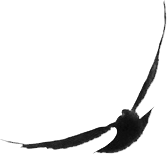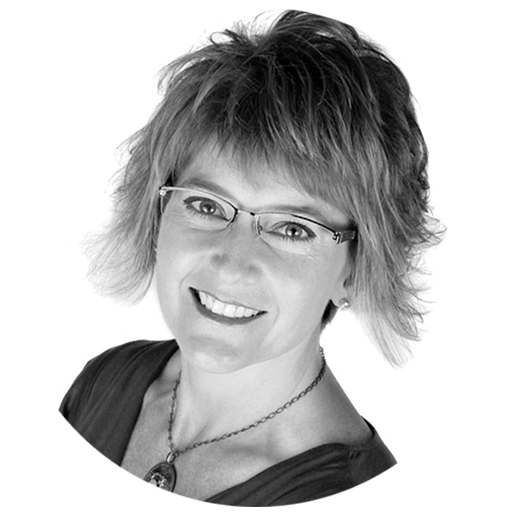
lie a lot.
I’m not proud of it and I am working on improving, but alas, it’s true.
I’m talking about the lies I tell myself. They’re numerous, they’re consistent and they’re often quite easy to justify. Sometimes I lie so much to myself that it’s difficult to remember fact from fiction.
I’d be lying if I claimed to be unique; I am certain you lie to yourself, too. I am equally confident those lies are holding us both back. That said, I think we owe it to ourselves, our loved ones, our teams and our communities to strive for truth.
A few years ago, I stumbled across this quote by Walter Anderson:
“Our lives improve only when we take chances, and the first and most difficult risk we can take is to be honest with ourselves.”
At the time, Lent was around the corner, so I decided to sacrifice self-deceit. On Ash Wednesday, I armed myself with a journal and committed to reflecting three times each day. I was going to write down any lie I told myself and, more importantly, the reason for doing so. I was confident that by mid-April, my journal would be refreshingly empty, and I would have emerged victoriously authentic.
Turns out, I lied to myself about lying. By Easter Sunday, my journal and many pages of an old spiral notebook were filled. I was so ashamed – I remember thinking I needed to throw them away before I was exposed.
Thankfully, I didn’t, and after the Easter celebrations came and went, I read each and every word that exposed the truth about my deception. It was a sobering exercise, but necessary to uncover trends and vulnerabilities.
For years, I prided myself in making quick decisions. However, the truth was, I wasn’t being decisive, I was being intellectually lazy. I allowed tainted, inaccurate or incomplete data to justify a choice, opinion, etc. Moreover, I discounted data that did not immediately align with my intuition, thus perpetuating what was likely a flawed belief or decision. Shoot, I added to the falsehood with another falsehood: I told myself I was expeditious and saving time. (There is nothing quite as speedy as the acceptance of bad data.)
The truth was that often I cared more about looking decisive, appearing smart or displaying confidence than I did about being diligent and just.
I am a comparer. I compare myself, my clothes, my hair, my house, my car, my career, etc. to others. I don’t know if I’ve always been a comparer, but it became painfully obvious during my Lenten journey. Please note, it was not the comparing activity that was deceitful. However, the comparisons almost always led to lies. It turns out lying is a great defense mechanism. It gives me no pleasure to admit that I could easily exaggerate, spin a half-truth or blatantly lie to myself about the situation or the other person simply to make myself feel better.
Until then, it didn’t occur to me to accept the truth that I was, merely, different.
I jumped on the self-care band wagon long before it was cool. I felt quite empowered when I put my own needs first. I convinced the aging woman in the mirror that she couldn’t care for others if she didn’t first care for herself. While I believe there is some truth to the concept, I also believe I took it too far. I allowed the concept of self-care to become the lie which justified selfishness.
As it turned out, being honest about my own needs was actually more liberating than lying about why I couldn’t care for others.

When I first started keeping track of my lies, I told myself it would be easy. That was a lie, too, although one I truly believed. It was less than seven days into Lent that evidence proved otherwise. Writing down the lies I told myself, and articulating why I told them, was extremely difficult.
Over time my journaling evolved, and the entries became more thoughtful. Indeed, they became rawer and more honest. I read them numerous times, studying them to learn more about myself. The pages and pages of lies written before me seemed to have paved the way to a mysterious truth ahead of me.
I came to realize that honesty is a mindset. And as much as I believed I was an honest person, my journal proved otherwise. If I wasn’t being honest with myself, how on earth could I assure my colleagues, employees, friends and family that I was being honest with them?
I knew I needed to change my mindset, so I challenged myself to break some habits.
1. I slowed down.
I took the time to critically evaluate data, evidence, etc. Was it valid? Was it probable? Was it credible? Was it complete? Did it align with my perceptions or contradict my perceptions, and why? In a nutshell, I committed to doing my due diligence to seek the full truth, and this takes time. So, I slowed my roll, and started to put in the time. I also committed to saying things like “I don’t know” or “I need more time.” At first, this terrified me, but I quickly learned that those words didn’t reflect failure, and certainly wouldn’t lead to my professional or personal demise.
Honestly, leadership isn’t demonstrated by quick decisions, false confidence and intuition. The truth is that leadership demands deliberateness. Thoughtfulness, thorough analysis, and the active solicitation of contradictions are all reflections of good leadership.
2. I looked within.
I looked in the mirror, sometimes figuratively and sometimes literally. (Try it – go gaze at your reflection and have a gentle conversation.) I told myself about the situation I was in, what was bothering me, what excited me. I tried to be fully honest about my emotions, my values, my hopes and my concerns. I learned that the more I had these intrapersonal conversations, the more I was willing to dig deeper and really uncover the layers of lies serving as false protection to my truth. As an added bonus, my intrapersonal authenticity had a positive impact on my interpersonal authenticity. I began to feel settled with who I was, and therefore quite comfortable with being myself around others.
Frankly, genuineness compliments leadership. The more I faced, and eventually accepted, the woman in the mirror, the more effective I became as a leader. It was then that I could honestly encourage and inspire my kids, employees and clients to discover themselves.
3. I wore it.
Whether it shined a light or casted a shadow, I decided to wear the truth. This scared me. Sometimes my new garment brought uncomfortable positive attention, and sometimes the shroud of truth was quite damning. But honestly, truth was a necessary tapestry. The good news is this: my truth, with all its knots, snags, colors and textures, was surprisingly lightweight and versatile – turns out, truth goes with everything.
Leadership should be cloaked in truth. Without truth, leadership falls flat and diminishes to a role to be played or a behavior to demonstrate. But leadership, when presented with honesty and candor, becomes a beacon for others.
I won’t lie and claim I slow down, look within and wear my truth all of the time. Truth is still quite challenging, but I am committed to improvement. Frankly, we all should be. We all play a significant role in ensuring truth is ubiquitous. It requires all of us to actively research and dig deeper to reveal the facts. It requires all of us to be diligent and identify where duplicity seeps in. It requires all of us to recognize our triggers for half-truths or hyperboles. Furthermore, it requires all of us to be tolerant and accepting of what we find.
Truth be told, truth is a righteous discovery.
